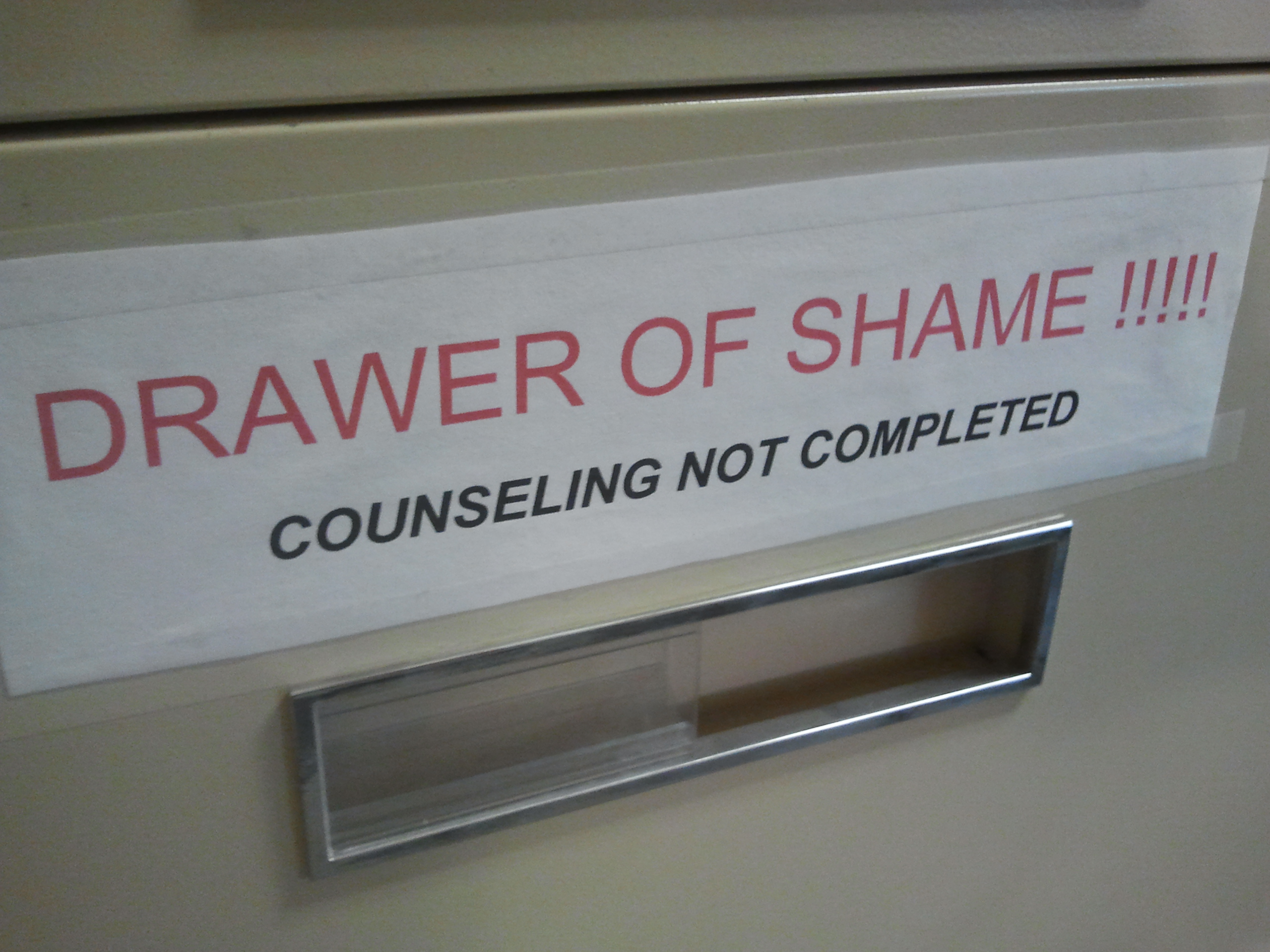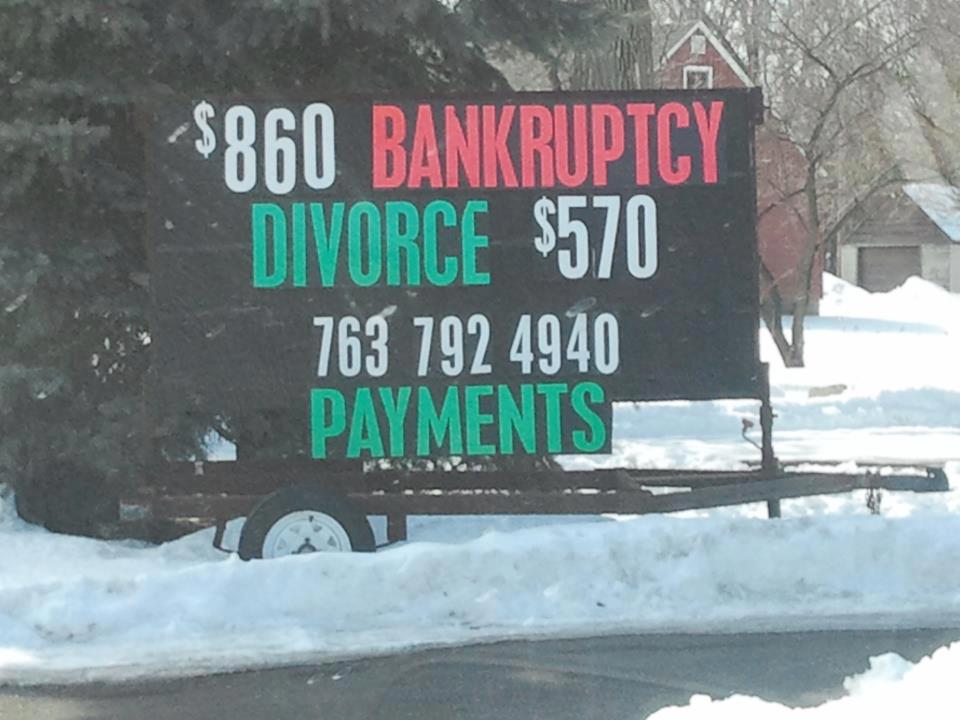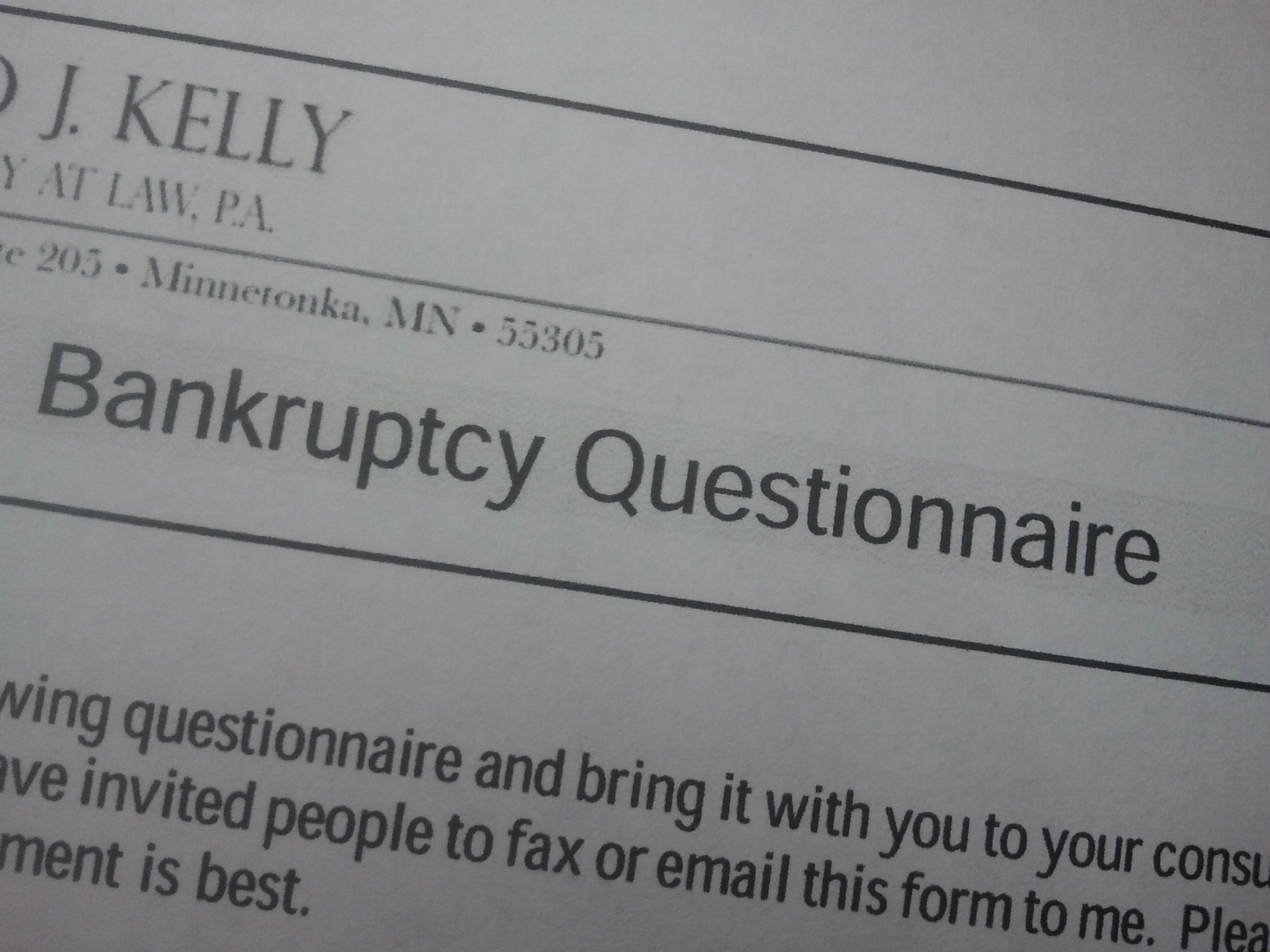The title of this blog post is a nearly exact quote of what I just told a client in a Chapter 7 case. In that case over the course of a week I had received a proposed reaffirmation agreement from a credit union for a car loan and another one from a bank for a second mortgage.
I told my client that I thought she should sign the first one but that I was really against her signing the second one. Why such seemingly contradictory advice? Here’s a summary, with names and other identifying specifics omitted, of how I explained it in an email to my client:
There’s a lot of stuff I need to tell you about. None of it is bad news, just routine. Here goes.
A reaffirmation agreement is a contract which, when filed with the bankruptcy court before the discharge date, reinstates a particular debt as if the bankruptcy never took place. I usually advise against signing them, but if you really want to you can do it anyway. I can’t stop you. I don’t like reaffirmation agreements because they usually have language in them that says paying will not be a hardship or problem for you at all. This contradicts everything else we have said in your bankruptcy petition, so I don’t want to have you sign unless there is a really compelling reason.
In the past couple of days I have received proposed reaffirmation agreements from (the bank holding the second mortgage) and from (the credit union holding the car loan). The (agreements are) attached …….
The thing with (the credit union with the car loan) is simple. If you don’t sign it they will probably repossess your car. So my advice as to that one is you better go ahead and sign it. I would call that a compelling reason. The time frame on that is that they have 60 days from the date of our ….. hearing (or meeting of creditors) to get it filed with the court. What I would like to do is sit down with you, go over it and get your signature on all the right signature lines on it when I see you on (the date of the meeting of creditors); and then I’ll take care of sending it back to (the credit union). They won’t do anything nasty if they have it in time to get it filed before the discharge, which is 60 days after the hearing.
As to (the bank holding the third mortgage), my advice is the exact opposite. (Under Minnesota Law )They can’t foreclose as long as you keep making the payments. The law (in Minnesota) concerning cars is way different from the law concerning homes. The worst consequence (In Minnesota) of not reaffirming is that they won’t report your payments to the credit bureaus. You can deal with that problem by keeping good records of your own so you can prove the payments have been made. I just spoke with …….., the person whose name is on the letter that came with the reaffirmation agreement. She says it is likely that (the bank holding the second mortgage) will resume sending monthly statements if they get a letter from me asking for that after the case has been discharged. I will plan on doing that when that time comes. I just put a note to myself on the front of your file to remind myself.
We will no doubt go over all this and discuss it when I see you on …….. – after we’re done with the hearing. There’s a conference room we can probably use at the courthouse, or we can go to the coffee shop on the main floor and talk there.
For now be sure you continue to make your car payments and the payments on both mortgages. These creditors might stop sending monthly statements, but that doesn’t mean you don’t have to pay. If you still want to keep the house and keep the car, you have to make the payments. Every now and then I have a client who gets behind in the payments because the monthly statements stopped. Don’t let that be you.
Creditors like this usually resume sending statements after the discharge, either on their own or in response to a request. After a bankruptcy the statements usually look a little different. Somewhere on the bill they will say something like “We know you don’t owe this any more but we thought we would send this in case you still wanted to pay. This is not an attempt to collect a debt.”
Of course once you reaffirm (with the credit union holding the car loan) you will owe the debt again, so their statements will look like they always did.
I didn’t get into it with this client, but the main reason I hate reaffirmation agreements is that they tend to defeat the whole purpose of the bankruptcy, which is to make debts go away and stay gone. Even with a car loan, where technically the creditor does have a right to repossess just because the debt was not reaffirmed, I try to avoid having my client sign. I make it my practice to call the lender and ask what they will do if my client does not reaffirm but continues to make payments. If a reliable person speaking on behalf of the lender says the lender doesn’t care about the reaffirmation as long as the payments continue to be made, I will tell my client that I think he or she can get along without the reaffirmation and my advice is don’t sign it.
I found myself inserting “in Minnesota” several places above, because I want it to be clear that what I am saying may not apply in another state. While bankruptcy is based on a federal statute that is supposed to apply nation wide, the law incorporates and relies a lot on local laws and local practices. If you are not a resident of Minnesota, please ignore and do not rely on anything said here. You need to consult a lawyer in your own state and your own community about matters like this.
This post is for general information purposes only, is not legal advice and does not create an attorney-client relationship. Please consult the attorney of your choice concerning the details of your case.














